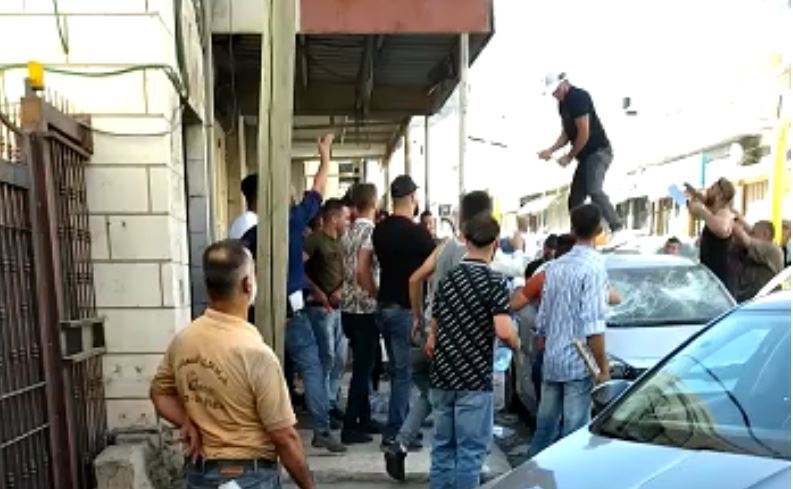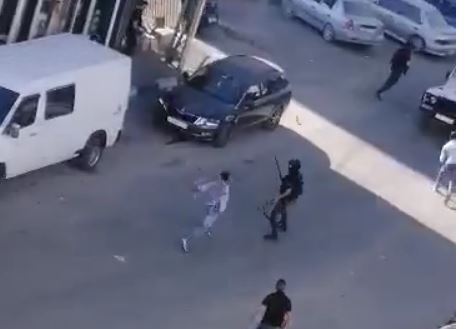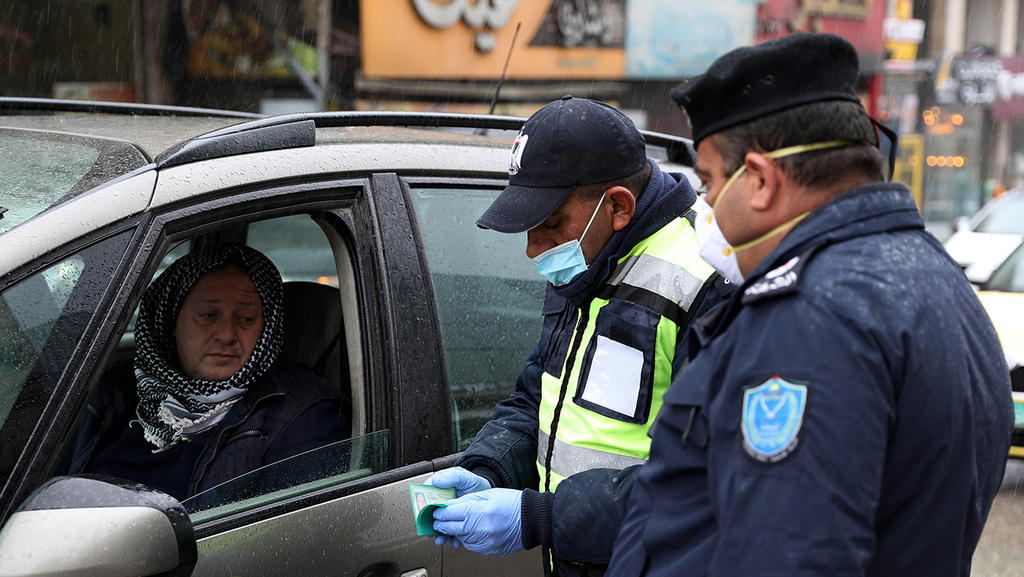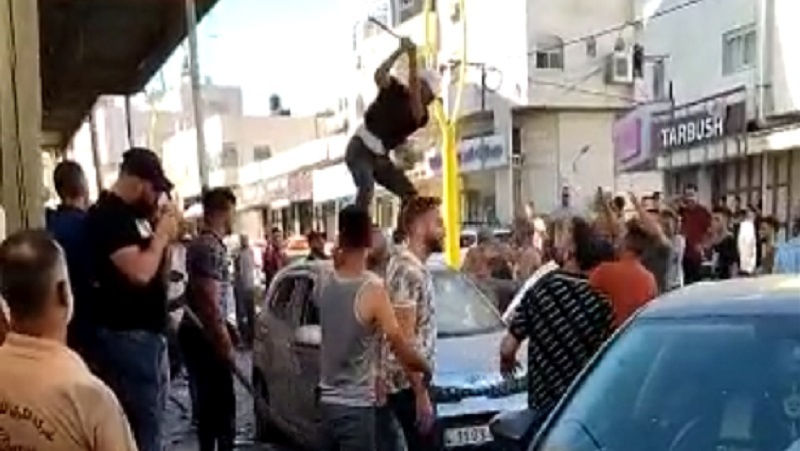The biggest city in the West Bank erupted in violence last week after the killing of Basil Fakhri al-Jabari, allegedly at the hands of members of the Awiwi family.
A feud going back 15 years between two of Hebron’s largest families set the conservative city ablaze and saw tribal rule assert its supremacy in the economic capital of the Palestinians.
4 View gallery


Clan violence in the streets of the West Bank city of Hebron in July
(Photo: Courtesy)
Members of Palestinian families are seeking revenge and taking matters into their hands in Hebron after a man from the Jabari clan was killed last week. His family accuses members of the Awiwi clan of being behind his murder to exact vengeance for the killing of one of their own in 2006.
Days of chaos ensued as angry members of the Jabari family attacked and burned vehicles and shops belonging to members of the Awiwi family last week and, in a show of force, men from the Jabari family appeared in public showcasing guns to intimidate the other side.
The Hebron tribes are large and powerful and their authority exceeds that of the Palestinian Authority itself.
Governor of Hebron Jibreen al-Bakri imposed a curfew and asked the PA to dispatch security reinforcements to help contain the situation. Nevertheless, the threat of renewed violence persists, and neither the PA police nor its officials have been able to calm the rising tension.
“The only force in Hebron that has the power to stop all this is the tribal elders,” said Abdel Ra’ouf Alnatsheh, a family elder.
Palestinians in the Hebron Governorate continue to preserve their traditional heritage in addressing and resolving societal issues, especially such killings, by resorting to “tribal legislation” or “law,” which in many cases supplants the PA’s role.
Alnatsheh said that tribal law is beneficial for all if it is implemented appropriately.
4 View gallery


Members of the Jabari clan shooting in the streets of Hebron, in July
(Photo: Courtesy)
“Historically, loyalty and respect for families and tribes is far more important than the central government. Who knows how to solve your problems better than you yourself?” he asked rhetorically.
“Clan law has been used for a long time and helped to solve many difficult problems. It is very effective in regulating society. The word of the tribal elders resonates and is taken seriously,” he explained.
Abu Khaled Ghaith, a well-known tribal elder in Hebron who helps to mediate between families throughout the Palestinian territories, says that in the absence of strong and credible central government that is well respected among the people, tribal law flourishes.
He stresses that the work of the family or tribe is important, especially because of its speed in containing problems, defusing crises, easing tensions and preventing them from exploding out of control.
“This is a deep-rooted, proven set of laws and understandings. Countless times we have helped to stop bloodshed by intervening quickly.”
If the disputing parties cannot reach a resolution on their own, they agree to let the elders come up with solutions that both sides are sworn to respect. This could range from paying a sum of money to the murdered person’s family, to expelling members of the killer’s family for a specific period or for good from their place of residence to ease tensions and stop bloodshed.
Anwar Abdallah insists tribal law should not be a substitute for the work of the judicial authority, and that the PA must put an end to it before it is too late.
“I don’t come from a big, influential family or a powerful tribe, and the way it is now under this system the weak have to give in to the strong,” he said.
4 View gallery


Palestinian police enforcing coronavirus restrictions in Hebron earlier this year
(Photo: EPA)
When PA Prime Minister Mohammad Shtayyeh imposed strict measures on several Palestinian cities to contain the COVID-19 pandemic, Hebron’s business leaders rejected the decision, saying it would hurt their businesses and the local economy. One of its strongest and most respected elders from the Jabari family came out flanked by gunmen and supporters, warning PA officials against going through with their decision and imposing closure on his city.
The PA backed down.
Some attribute the rise of tribal law to the weakness of the Palestinian Authority’s judicial system and the lack of trust in its security services.
Schoolteacher Amal Saed opposes the tribal system. The PA must assert its authority and impose civil law equally on the families and the tribes, she said, adding that the police should handle all disputes.
“The clan system is present and strong, whether we like it or not. This system is clearly manifested in times of crisis, murders, revenge and tribal reconciliation. But in my opinion it weakens the PA and it paves the way for more crimes, because criminals are confident that their family or tribe will stand with them and they will not go to prison,” she said.
“The law must apply to everyone and the criminal must be punished in civilized ways and as stipulated by law,” Saed said.
Ghaith disagrees, saying the family or tribal system works in tandem with the official legal system and not against it.
4 View gallery


Clan violence in the streets of the West Bank city of Hebron in July
(Photo: Courtesy )
“We make sure that tension doesn’t get out of hand by paving the way for the PA. We obtain an atwa [temporary cease-fire] from the aggressor family and impose a truce to preserve lives. This is something that the PA cannot do like we do.”
An atwa, literally a “gift,” is an understanding that tribal elders sign a deal over cups of Arabic coffee. This is followed by a tribal truce designed to cool the rage of the conflicting sides without the intervention of the government.
“The power and influence of the tribal system will not disappear; it is here to stay,” Ghaith said as he sipped on his coffee.
Reprinted with permission from The Media Line

